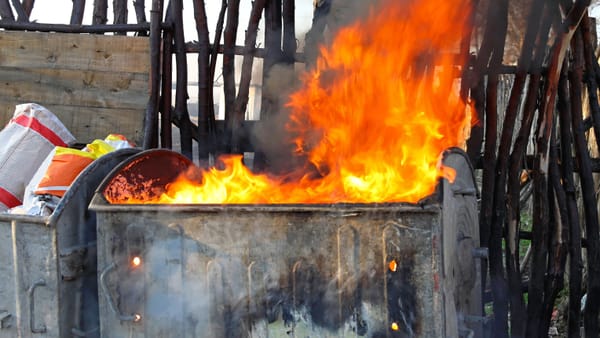Pulling out of Afghanistan was the gutsiest thing Biden has done
Biden did what previous presidents were too scared to do, but it comes at a cost for the Afghan people

Last week was perhaps the most difficult of President Joe Biden’s presidency to date. The president stood by his decision to honor a previous agreement to permanently withdraw US troops from Afghanistan, a country the US has occupied for nearly 20 years.
The troop withdrawal left the country with little defense against the extremist Taliban warriors who controlled Afghanistan before the US declared war in 2001.
As disturbing images of desperate Afghans clinging for dear life to US warplanes came through the wires, Biden has been pilloried by a DC political press that have always been the forever war’s biggest cheerleaders. The pages of the New York Times and The Atlantic have been filled with criticism, blaming Biden for the outcome that has been inevitable since the war began. Pleas for assisting Afghan US allies and helping the women of Afghanistan have rung out all over the western world.
At the center of it all is Biden, but the calamity in Afghanistan wasn’t built in the few early months of Biden’s presidency. The path to Taliban power was inevitable from the beginning and Biden’s decision to finally cut the cord on the forever war may well go down as the gutsiest call of his term.
****
I was 19 years old and a college freshman when 9/11 happened. I had just voted in my first presidential election the year before and I was angry. About a week after the attacks on the the World Trade Center and the Pentagon, my school held a job fair. I’d always been a fan of military history, memorizing maps of battles in Normandy from 1944 or reading Sun Tzu’s Art of War at an unreasonably young age. So I spent a lot of time talking with the Army recruiter there that day, contemplating signing up, at least in part to get at some vague goal of “revenge.”
As we talked more and more, the recruiter finally looked at me and said, “look kid, if you enlist, they’ll send you to Afghanistan in a month. You good with that?”
I wasn’t.
So I thankfully walked away from his desk and went on with my day. It wouldn’t take long for my want of revenge to turn into questioning everything I thought I believed to that point.
****
In February last year, then-president Donald Trump negotiated a deal with the Taliban to permanently withdraw troops from Afghanistan. Afghan president Ashraf Ghani’s government did not take part in the talks between Trump’s White House and the Taliban. This should have been a clue to those of us in the DC media as to how the American government viewed the power and importance of Ghani’s government and his Afghan military.
Flash forward to now and Ghani has fled his home country and the Taliban is in the midst of a sweeping takeover of the centers of power within Afghanistan. The speed with which the Islamic insurgent group moved has left the world stunned and the Biden administration scrambling to evacuate Afghan interpreters and others who’ve assisted with the US war effort for years.
Since August 14, a reported 37,000 Afghan allies have been evacuated by the US from Kabul. Reports have emerged that the Taliban are now taking bribes for safe passage to the Kabul airport and sporadic small arms fire can be heard in the vicinity. Pictures of Afghan streets, almost completely devoid of women, have emerged over the last several days as the Taliban has instituted its extreme interpretation of Islamic Sharia Law.
What’s happening in Afghanistan can only be described as a tragedy. But it was inevitable from the moment former President George W. Bush decided to invade.
Back then, Afghanistan was seen as the “righteous war,” the war to get back at the perpetrators of 9/11. But after initially smashing the Taliban, and greatly dismantling al Qaeda’s worldwide network, and eventually killing Osama bin Laden in neighboring Pakistan, the US strangely stayed in Afghanistan, long after it’s original mission had been accomplished.
No president wanted to deal with the inevitable overwrought headlines now being thrown Biden’s way.
****
It makes logical sense, the Taliban takeover. It’s their country and they’ve had two decades to plan its offensive. The only way to avoid it was a permanent US occupation of Afghanistan, something that no US president supported out loud, but had previously enforced through policy, until Biden.
The occupation was also good for US business. I still remember the starry-eyed 2017 headlines about the largest non-nuclear bomb ever dropped in war, ridiculously dubbed the “mother of all bombs” or “MOAB”. The war was good for munitions manufacturers and the US military retooled its capabilities away from preparing for a large set piece war with a rival global superpower like the former USSR and towards the so-called “war on terror.”
American drone strikes, cheaper than manned missions, became every day occurrences not just in Afghanistan but across the Middle East.
What began as a war to bring Osama bin Laden and Al Qaeda to justice quickly became a two decade live-fire testing ground for American weapons manufacturers. Over that time, the US spent approximately $2.26 trillion on the war, according to Brown University’s Costs of War Project. As of April 2021, over 71,000 Afghan civilians and over 75,000 Afghan police and military personnel have been lost to the war.
Through the last 20 years, the war in Afghanistan was the one constant. Americans started an unprovoked war in Iraq in the name of “fighting terror” and eventually left. But Afghanistan was always the forever war. Forever pointless in advancing US security interests and instead serving as a security blanket for military contractors’ bottom lines.
It has long been time to leave Afghanistan, but no president has had the guts to actually pull the trigger on withdrawal, until Biden. Though Biden enthusiastically voted to authorize the war when he was a member of the Senate in 2001, he’d long since been a critic of US war strategy in the country, according to Bob Woodward’s book, “Obama’s Wars.”
The war has long been lost, but American military advisors had succeeded in convincing multiple presidents to give the war another chance. President Obama sent a “surge” of 30,000 troops and equipment to Afghanistan in 2009, but that merely delayed the inevitable. Everyone with a brain not drenched in American colonial blood could see what was coming when the US eventually decided to leave.
Is it a tragedy? Yes. Urban Afghan women will perhaps suffer the most as they are suddenly erased from public life by their Taliban oppressors. But their fate joins that of their more rural compatriots, who’ve often never left Taliban oppression despite the US occupation. We should be doing all we can to support Afghan women and help them find safety in this world.
But should the US military intervene on behalf of Afghan women? Personally I don’t think so. There’s not a women’s rights argument that anyone could make for recommitting troops to the forever war that we couldn’t also make in favor of invading close US ally Saudi Arabia. We simply like the Saudis, and their oil money, more than we like the Taliban. So white western writers demonize the Taliban and ignore the inconvenient happenings in Saudi Arabia.
After all, none of this has ever been about freedom for the Afghan people, women or not. It’s always been a war grift. This war has been waged across my entire adult life. I’ve watched classmates enlist and die in Afghanistan. Every once and awhile I’d see a childhood friend and an airborne officer pop up in news reports from the frontlines.
It was my generation that’s been tasked with carrying out the military whims of our presidents. It’s been millennial blood that’s been spilled in this stupid, pointless war. And we gained nothing from it as a country.
It’s time for the neo-cons and the war’s cheerleaders in the press to recognize reality. It’s over, and we’re better for it.
Good for Biden for turning the money spigot off and finally saying no to his generals and the weapons makers they prop up. It may well go down as the gutsiest call of his presidency.




